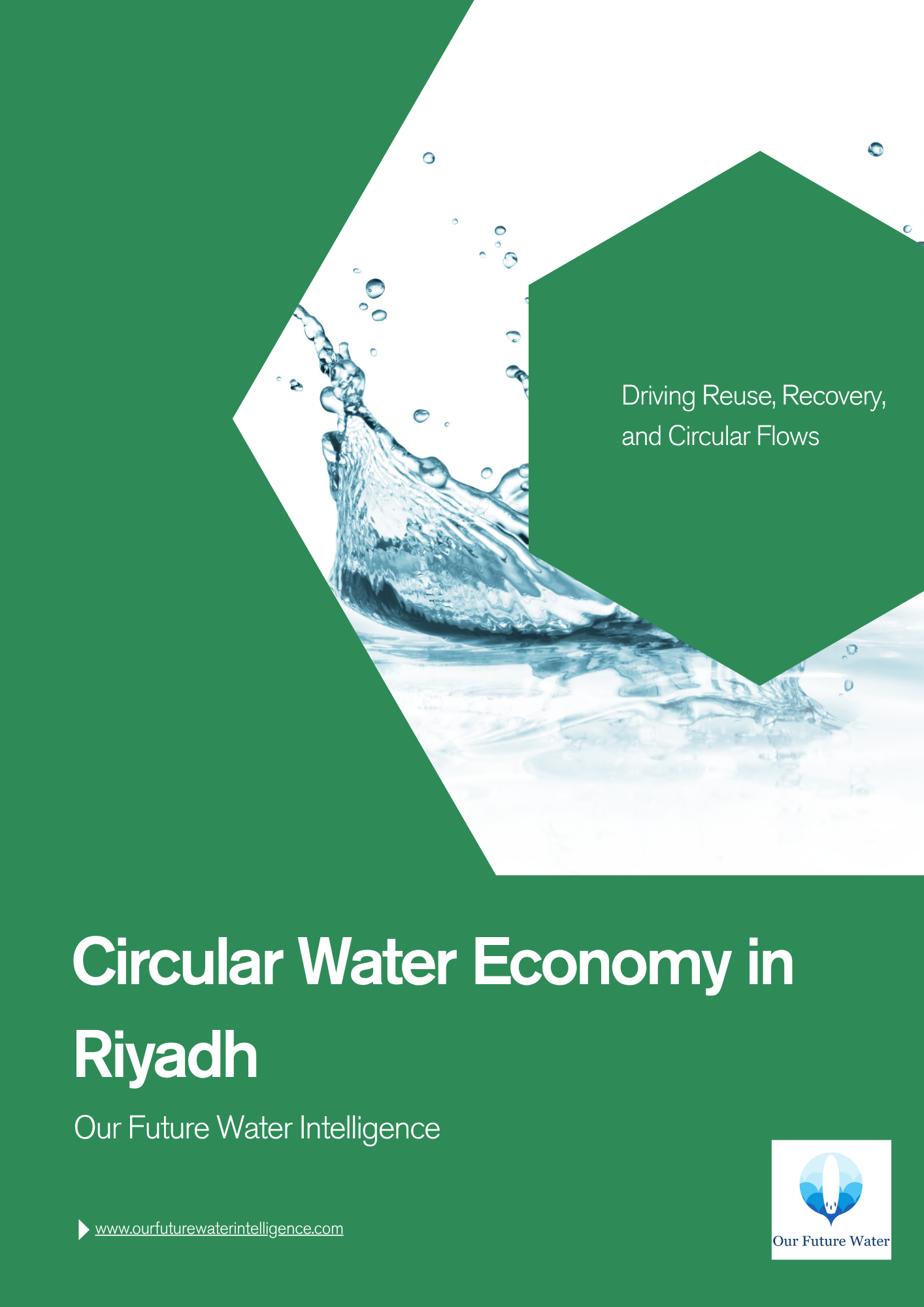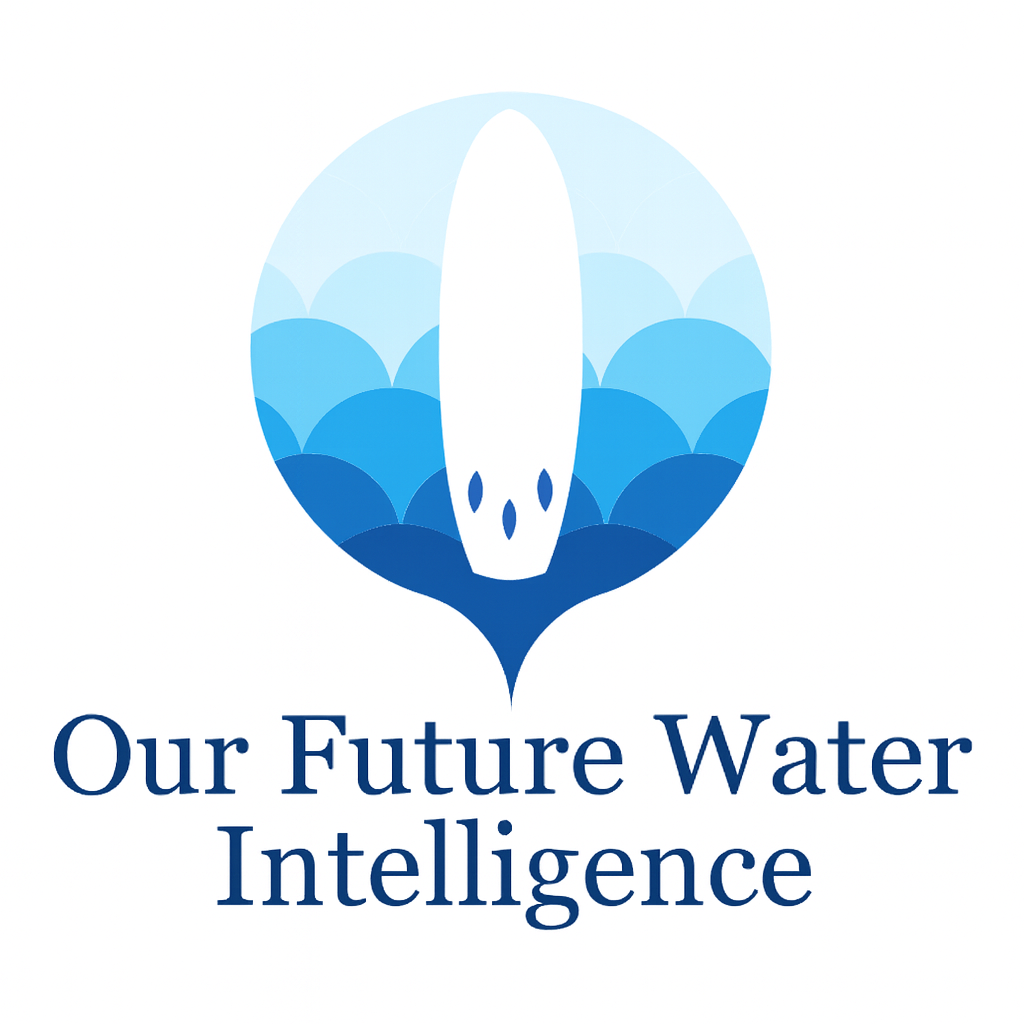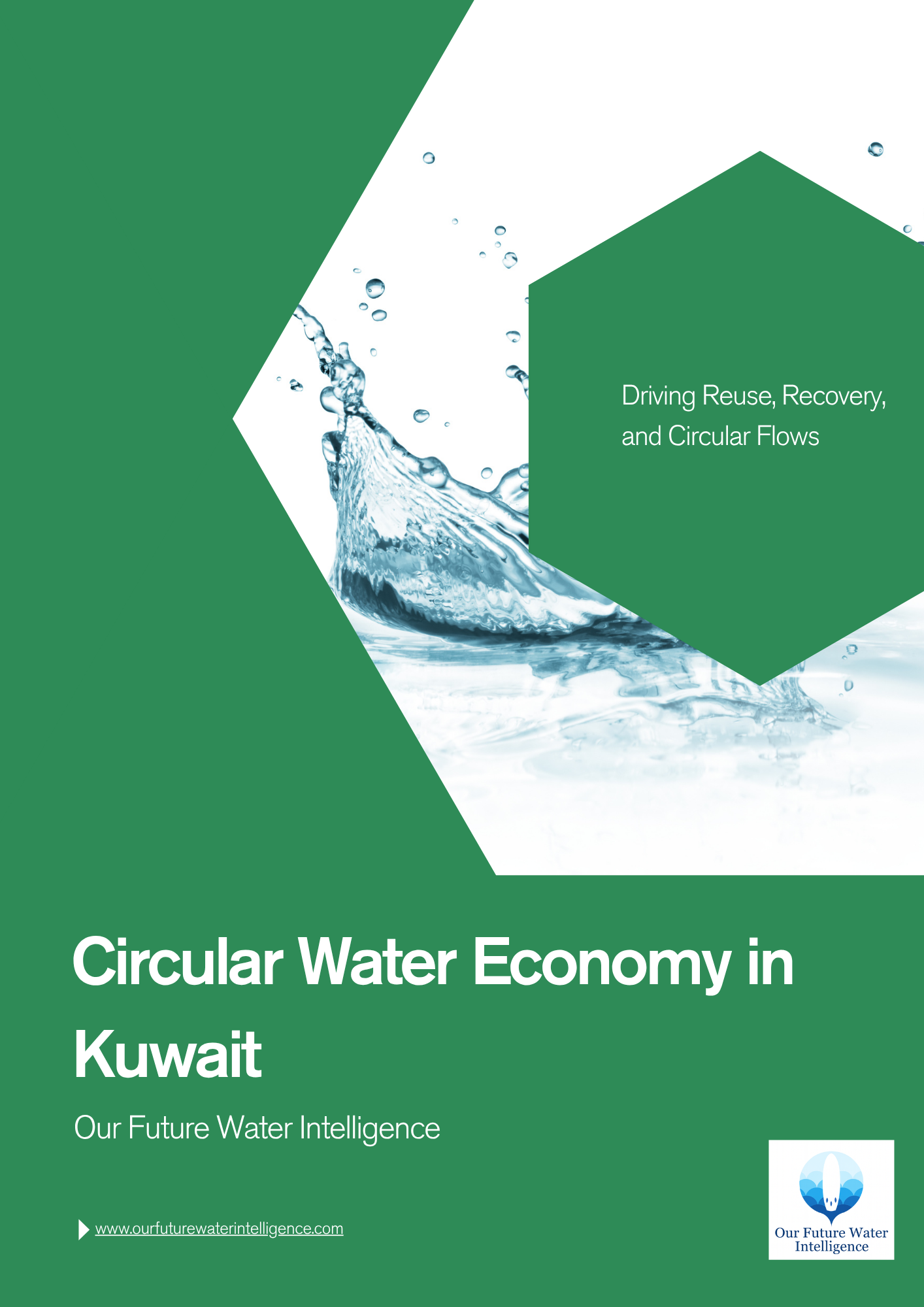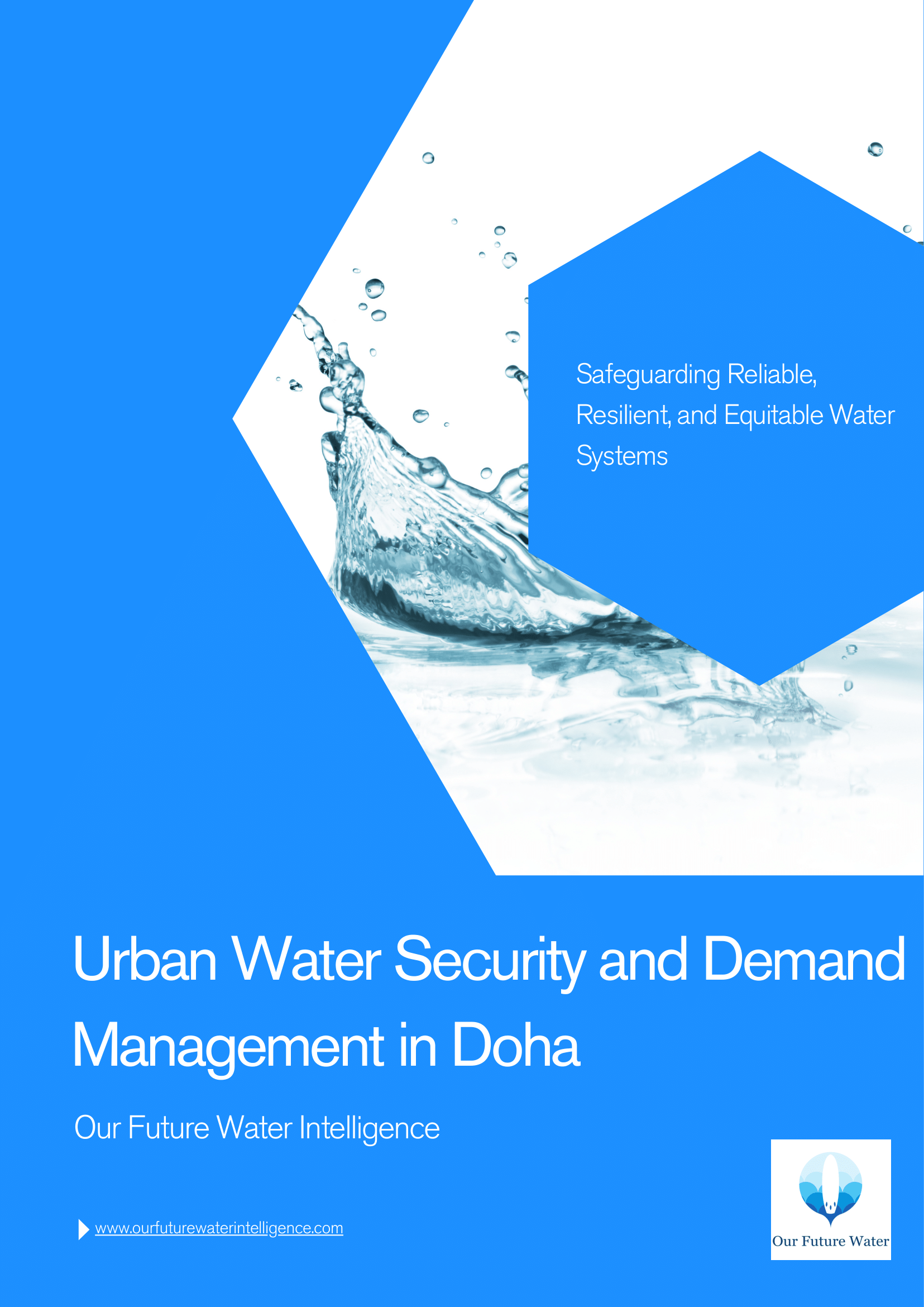Our Future Water Intelligence has released its latest publication,
Circular Water Economy in Riyadh, authored by Robert C. Brears, Founder of Our Future Water Intelligence and an internationally recognized expert on water security, urban resilience, and sustainability governance.
Published at a defining moment in Saudi Arabia’s water transition, the report delivers a comprehensive analysis of Riyadh’s shift from a linear “use-and-dispose” model to a Circular Water Economy (CWE) under Saudi Vision 2030 and the National Water Strategy (NWS) 2030. It explores the city’s progress in applying the 5Rs Framework—Reduce, Reuse, Recycle, Recover, and Restore—to enhance water efficiency, diversify supply sources, and integrate nature-based solutions for long-term resilience.
KEY FINDINGS
-
Circular Transition: Riyadh’s CWE framework integrates technological innovation, policy reform, and environmental restoration to strengthen water sustainability in one of the world’s driest regions.
- Desalination Dependency: Desalinated seawater supplies about 75% of municipal demand, accounting for 62% of total distributed water (2023). While critical for supply security, desalination consumes roughly eight times more energy than groundwater extraction, highlighting the importance of circular approaches to offset costs and emissions.
- Reuse Expansion: Treated wastewater reuse rose 12% in 2023 to 555 million m³, with flagship projects such as the Riyadh South WWTP (400,000 m³/day) and Green Riyadh using 1 million m³/day of treated water for irrigation—supporting the national 70% reuse target by 2030.
- Resource Recovery: Innovations in desalination brine management are enabling recovery of high-value materials (lithium, bromine, salts), transforming waste into economic opportunity and aligning with Saudi Vision 2030’s industrial diversification goals.
- Demand Management: Urban water use declined 10% in 2023 to 102 liters per person per day through digital tools such as the Kashf leak-detection app, which has saved 8 million m³ of water.
- Digitalization: Millions of smart meters and SCADA systems enable real-time monitoring and leak management, while AI-driven inspection robots maintain Riyadh’s 400-km stormwater network.
- Green Infrastructure: Nature-based projects such as Wadi Hanifa and Green Riyadh demonstrate the integration of ecological restoration with urban water management, reducing flood risk and improving microclimates.
- Private Investment: Over US$ 12 billion in private financing through PPPs is accelerating the development of wastewater and desalination infrastructure while enhancing efficiency and fiscal sustainability.
- Climate Pressures: Rising temperatures, intensifying droughts, and rapid urban growth are increasing stress on water resources, making the CWE transition a strategic imperative for Riyadh.
EXPERT INSIGHT
“Riyadh’s journey toward a Circular Water Economy shows how one of the world’s driest cities can turn scarcity into sustainability through innovation, efficiency, and environmental restoration,” said Robert C. Brears, Founder of Our Future Water Intelligence. “This report equips decision-makers with evidence-based insights to modernize systems, improve efficiency, and advance resilience under Vision 2030.”
WHAT’S INSIDE THE REPORT
- Comprehensive overview of Riyadh’s water supply, demand, and infrastructure performance
- Application of the 5Rs Framework ( Reduce, Reuse, Recycle, Recover, Restore ) to achieve water circularity
- Analysis of policy, tariff reform, and digital modernization under NWS 2030
- Assessment of brine resource recovery and nature-based solutions for urban resilience
- Strategic actions for reducing non-revenue water, enhancing reuse, and advancing green finance
WHY THIS REPORT MATTERS
Riyadh stands at the forefront of the global water transition—balancing rapid urban growth and climate pressures with circular innovation and policy reform. Through the CWE framework, the city is redefining water sustainability for arid environments, demonstrating that desalination-dependent regions can achieve efficiency, reuse, and resource recovery at scale.
This report delivers authoritative intelligence for policymakers, utilities, and investors to accelerate Saudi Arabia’s transition toward a resilient, low-carbon, and circular water future.
Our Future Water Intelligence — Strategic Foresight for Decision-Makers



